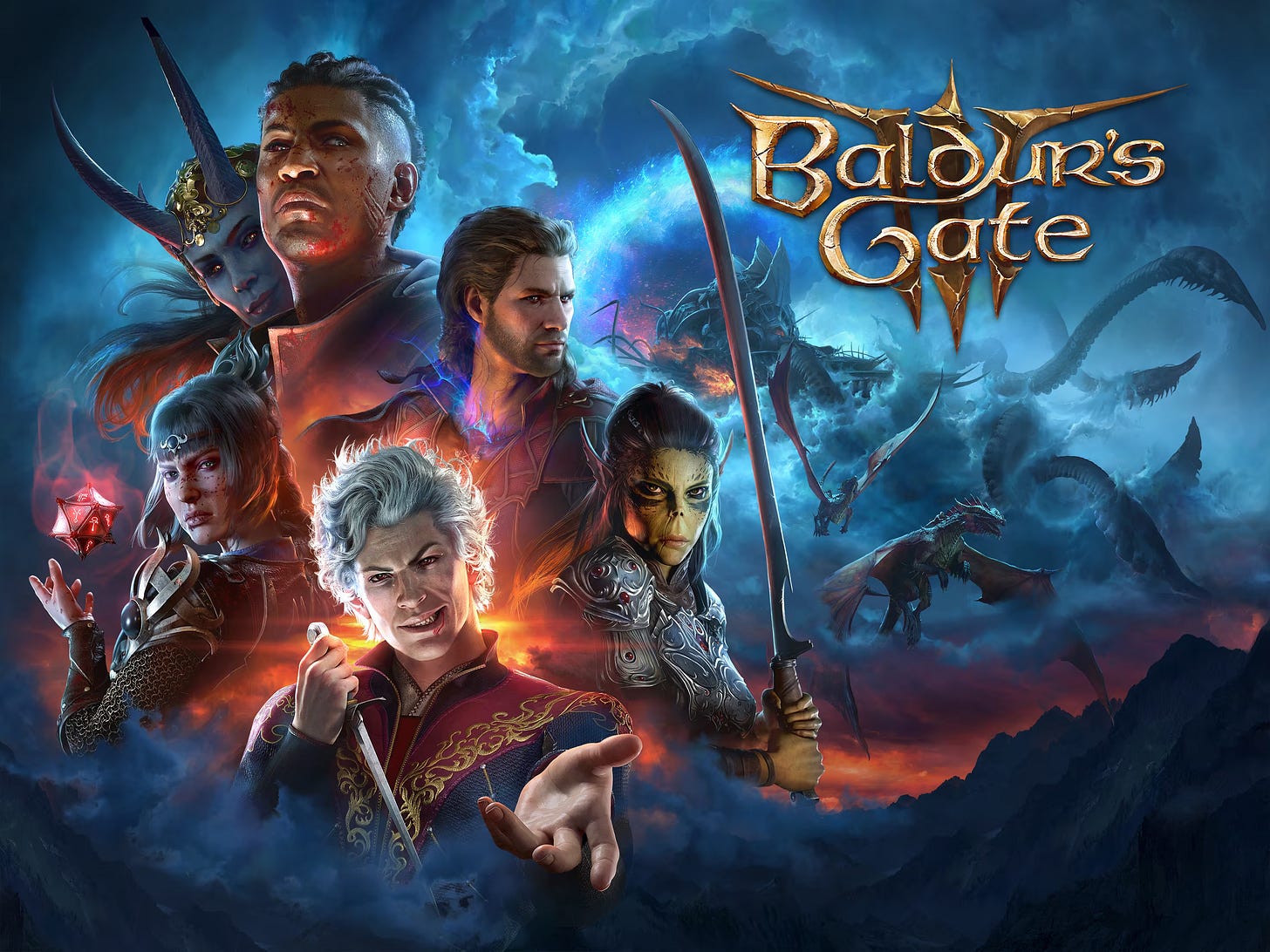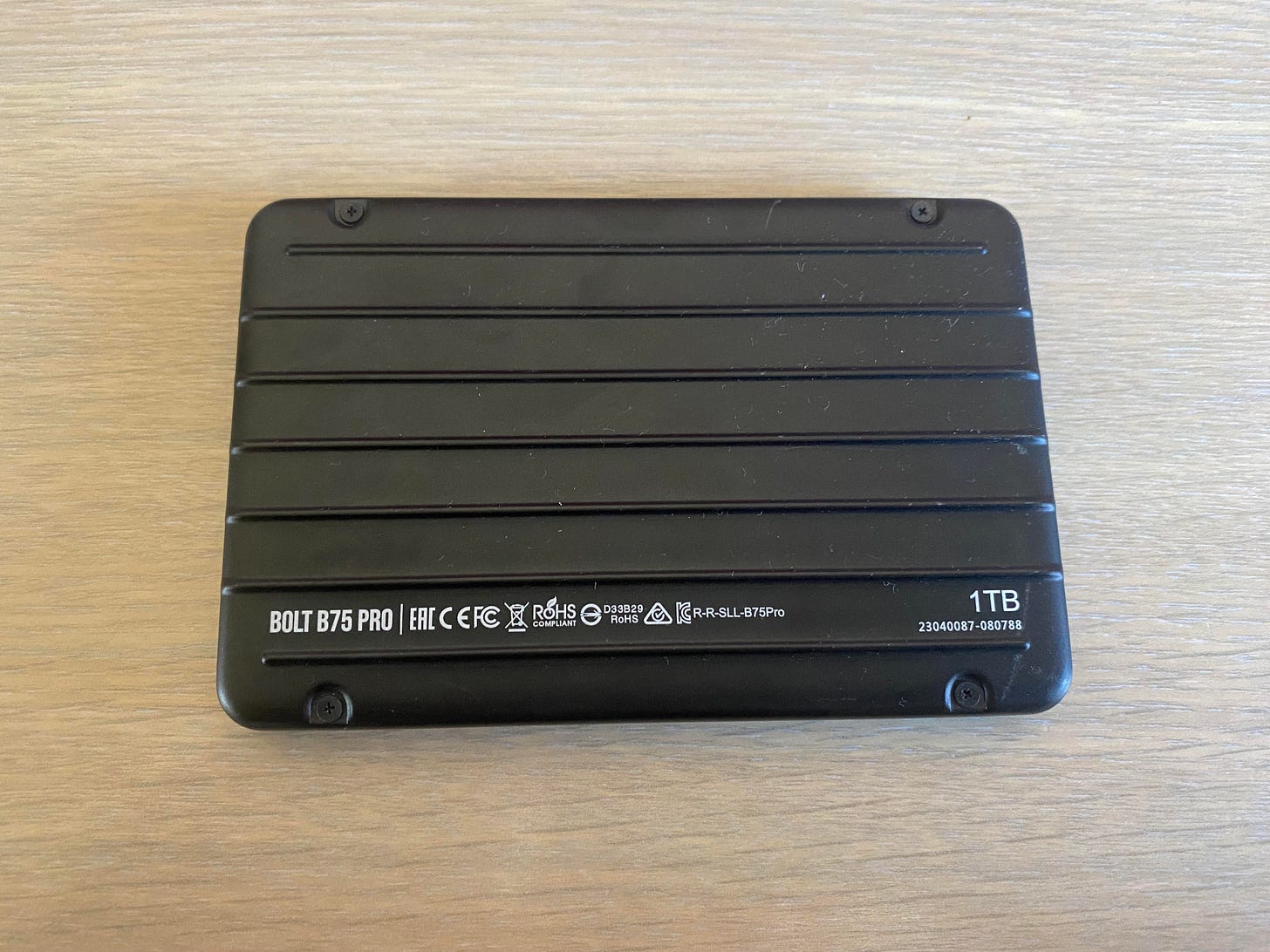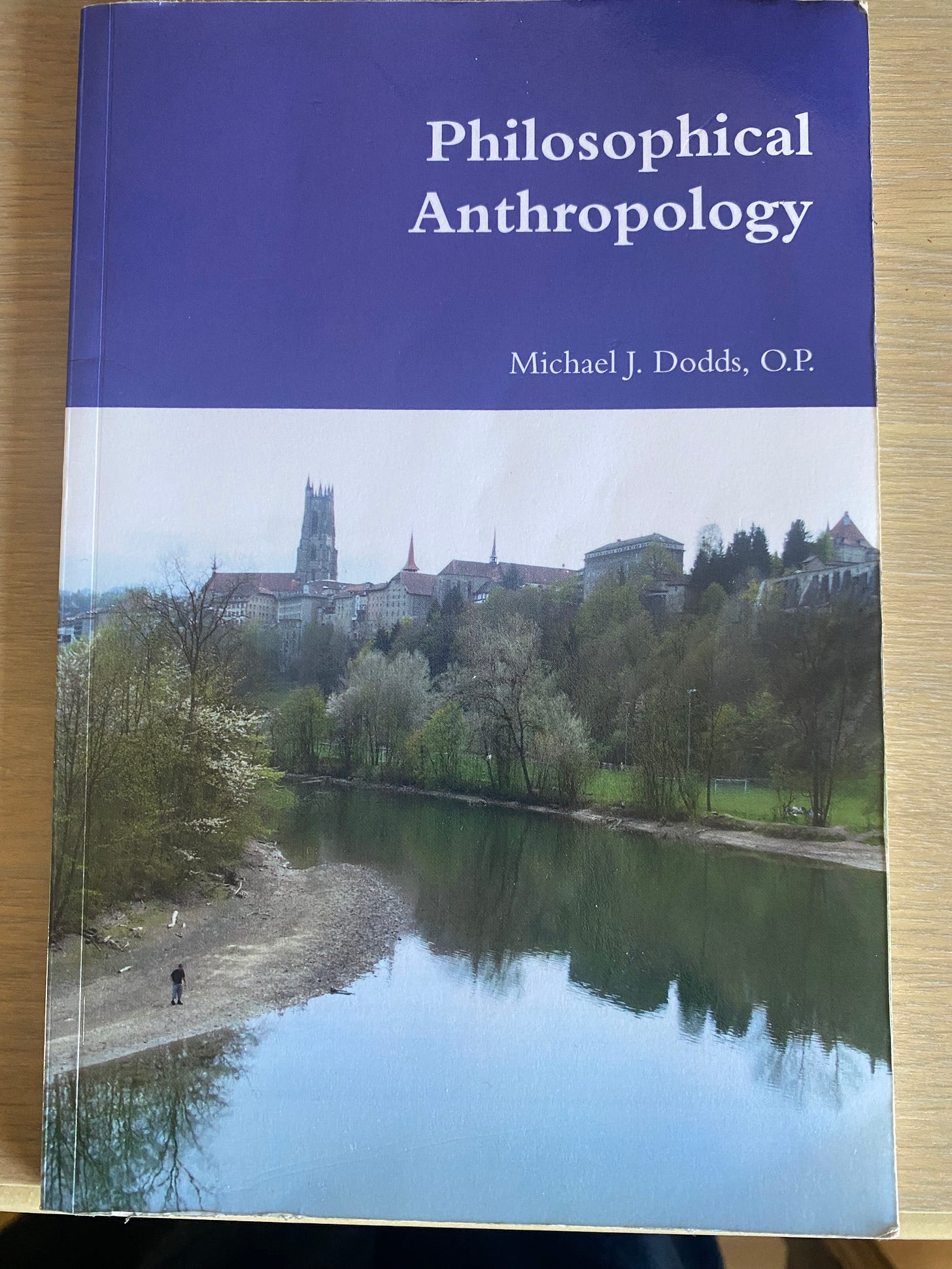Reading to Remember
On Mistaking Myself for a Hard Drive
In November 2023 my wife bought a wonderful gift for me.
Go buy it and play it if you haven’t already (and you like playing games)
Unfortunately, our laptop lacked the storage space for the game. I purchased a 1 Terabyte external hard drive and downloaded the game to that rather than my laptop. Then, behaving like the teenage boy I once was, I played and struggled to stop. Because I am basic, my first character, Kleomenes, a red-haired paladin, tried to be honorable and just. Unfortunately for him, video game violence is fun, and he broke his oath a few times. As Kleomenes progressed through the game, I knew my wife had provided me a precious gem of a game. I would certainly play through the game again (and again, and again) like a book that I fell in love with and re-read, always knowing I will come back again. Finally, after some large number of hours, Kleomenes defeated the Big Bad Evil Guy and saved Faerun. I had beaten Baldur’s Gate 3 for the first, and certainly not the last, time.
Then I deleted my save file, and Kleomenes no longer existed outside my memory.
The reason I deleted himis that I do not have a great concept of what a terabyte is. Nor do I have a concept of how many bytes or megabytes or gigabytes Kleomenes and his story might have taken up. I feared the completed quest would deny the space needed for the newborn tale of Kar’athlus, a tiefling warlock who made some questionable choices including sleeping with a devil (two if you count the cambion). That fear of insufficient space was unfounded. A terabyte is way, way bigger than I thought. I made a simple mistake: I thought that the new information would not fit unless I removed the the old, and at core, applied the perceived limitations of my memory to a terabyte hard drive.
When I read a book that makes a significant impact on me - say, when I read Goliath: The 100-Year War Between Monopoly Power and Democracy by Matt Stoller a few years ago - anti-trust economics was on my mind all the time. I wanted more, so I continued reading his Substack, and I sought out other texts to read to understand economics, trusts, and anti-trust law better. Antitrust policy and economics are not my home turf, so I fumbled around looking for resources. Before long, another interest captured my attention: a strong desire to reignite my passion for Latin. As I sought out Latin texts, and my focus shifted to Lingua Latina Per Se Illustrata, the passion for Latin relegated the interest in anti-trust to the shadowy outskirts of my memory. It was not that I had lost interest, merely that I focused on something else.
This was the core of the error I committed regarding the terabyte hard drive. The hard drive has no attention. Kleomenes existed like a book in a library; he could have existed (in so far as he did exist) for a thousand years, encoded in magical 0s and 1s within a little black rectangle. Just as Elizabeth Bennet remains the same today as when Jane Austen completed Pride and Prejudice, Kleomenes would have looked identical whether I reopened the file in a year, a decade, or a century.
Behold, the former home of Kleomenes and the current home of Kar’athlus. Ignore the dust.
Technology is better than it used to be. I remember playing Ocarina of Time as a kid and being limited to three save files. I remember playing Pokémon Red and being limited to one. Plenty of games now allow, theoretically at least, infinite save files. The old limitations no longer apply. Even so, my phone still runs out of space, at least until I delete Hearthstone again, and there is some number of Baldur’s Gate 3 save files I could generate which would completely fill my hard drive. This is because fundamentally all digital technology is like a library. So long as mold or malware has not destroyed the book or file, it will remain, awaiting someone to select it and shine their attention spotlight on its content.
That error cuts both ways though. For while I applied my limitations to my terabyte hard rive, I often find myself wanting to emulate the great artificial virtue of libraries (classical or digital). More specifically, I find myself dissatisfied at my inability to measure up to those virtues. For I have read Goliath and I have only hazy memories of various parts of that book. I am re-reading Michael Dodds, OP’s Philosophical Anthropology for the third or fourth time, and I cannot recite a single quote. I look at those books and think, “That is understanding - a perfect whole, the same yesterday, today, and always.” My memory cannot compare, and so I despair.
I cannot recommend this book highly enough.
Stoller and Fr Dodds wrote those books, and so I tend to assume that if I asked them about their subjects, I would receive an oral download that more or less matches the structure and content of their books verbatim. My inability to recite those texts word for word, or at least idea for idea, makes me doubt whether I really understand. A shaky understanding of antitrust policy I can endure, but to admit I do not understand a true philosophical anthropology would be a difficult blow to bear.
Except I have taken classes with Fr Dodds, and while we used Philosophical Anthropology as a text for one of them, he did not simply regurgitate the book. We read it for homework, and discussed it in class, and wrote essays to demonstrate our understanding. None of that was a mere recitation and recall of the book. I suspect Fr Dodds himself could not, off the top of his head, much quote himself. Obviously he understands philosophical anthropology (and much else besides that). Therefore my assumption about understanding must be wrong.
Understanding is not replicating.
The key difference between the artificial virtue of a book (physical or digital equivalent) and the human mind is that the latter possesses that spotlight of attention mentioned earlier. Intentionality is a feature of the human being. We can impose intentionality on other things. Books are, after all, about things, truly speaking. But the intentionality of a book is derivative of human intentionality. Our intentionality has many components, but one of them is a creative flexibility to express the same truths in new ways for new contexts.
To take one example, I own the Manual of Neo-Scholastic Philosophy by Charles Baschaab, published initially in 1923. Part of that book expresses the same truths that Fr Dodds communicates in his book, but the language is very different. Baschaab uses a host of terms - inorganic and organic, psychology and cosmology - in ways which are unfamiliar to me. The style of the manual is also foreign to me. It is very reduced and compact in its writing, presenting its truths almost as facts to be memorized where Fr Dodds presents in a way that feels more like pondering on a morning lakeside walk. Nevertheless the two works express the same truths (in the relevant parts, of course). I can recognize that thanks to Fr Dodds’s teaching, and the teaching of many others.
This, then, is a truer understanding of understanding: the internalization of knowledge such that it can be expressed and re-expressed creatively, communicated amongst people who might have different backgrounds and understandings and may even disagree.
Even if I cannot list every book I read last year (something that perennially agitates me), it is the internalization that matters. Goliath has provided me with an anti-trust lens, even if my knowledge of anti-trust is horrifically incomplete. My facility with Thomistic philosophical anthropology gives me a lens I look through often, and helps me to understand, or at least contextualize, things that I come across for the first time (like, for instance, anti-trust economics).
I read to remember in decisions, in conversations, in essays I write. To sum up with a quote from Sertillanges, OP:
Our mind has the task not of repeating but of comprehending-that is, we must “take with” us, cum-prehendere, we must vitally assimilate what we read, and we must finally think for ourselves…We must recreate for our own use the sum total of knowledge. (The Intellectual Life, AG Sertillanges, OP, 170)
My foolish mistake would have left me floundering in the waters of a pseudo-thinker. I do not want to outsource my own thinking. Indeed I do not wish to dishonor the thinkers who wrote their books to aid my thinking, not to replace it. So I will forgive myself for not having a terabyte of information ready-to-hand at all times for instant access and download. I will seek instead to take with me the gifts they have given and to use them where and when I can.




